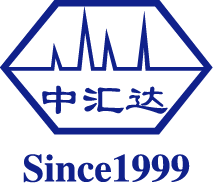|
Work Time Mon to Fri :8:00-17:00 Contact Details Tel::0411-86732112 Tel::0411-86732113 Tel::0411-86730533 fax::0411-86732114 E-mail:zhd@zhonghuida.cn URL::http://www.naturally-grace.com |
How to Select Capillary Chromatographic Column Correctly?
Column length: The resolution is directly proportional to the square root of column length. If other conditions remain unchanged, 4 times of column length is required in order to double the resolution. Short columns are applicable to simpler samples, especially those composed of constituents which differ greatly in structure, polarity and volatility.
In general, 15m long column is used to separate simple samples rapidly, or for scanning analysis; 30m long chromatographic column is the commonest column applied by a majority of analyses; 50m, 60m long or much longer columns are used to separate complex samples. It should be noted that analysis time increases as column length increases. Inside diameter of chromatographic column: Column diameter directly affects sample efficiency, retention characteristics and sample volume. Columns with small diameters are more efficient than columns with big diameters; however, their column volume is smaller. 0.25mm: higher column efficiency; lower column capacity; better separation result of complex samples. 0.32mm: Column efficiency is slightly lower than that of 0.32mm column; but its column capacity is about 60% higher. 0.53mm: column capacity is similar with packed columns; can be used for split injection or splitless injection. When column capacity is the primary consideration (such as trace analysis), it is appropriate to choose capillary chromatographic column with bigger diameter. Thickness of liquid membrane: The thickness of liquid membrane affects the retention characteristics and column capacity of chromatographic columns. Retention increases as the thickness increases. 0.1-0.2m: Capillary chromatographic columns with thin liquid membrane elute constituents faster than those with thick liquid membrane; in addition, their column bleeding is smaller in high temperature; as a result, they are applicable to analyzing high-boiling compounds. 0.25-0.5m: Commonly used membrane thickness. Thick liquid membrane: More favorable to analyzing compounds with low boiling point. TypeInfo: Technical Information Keywords for the information: |

